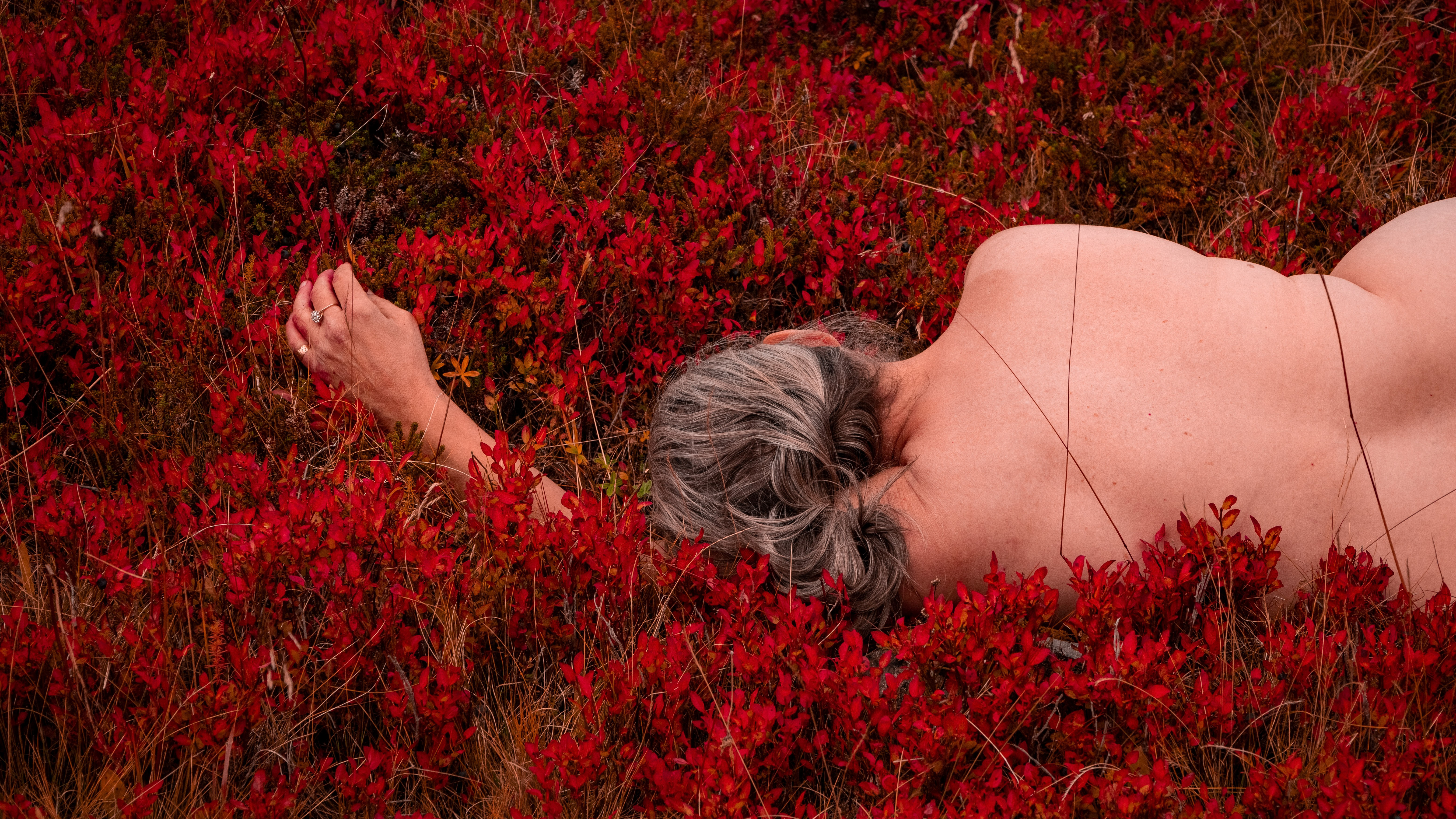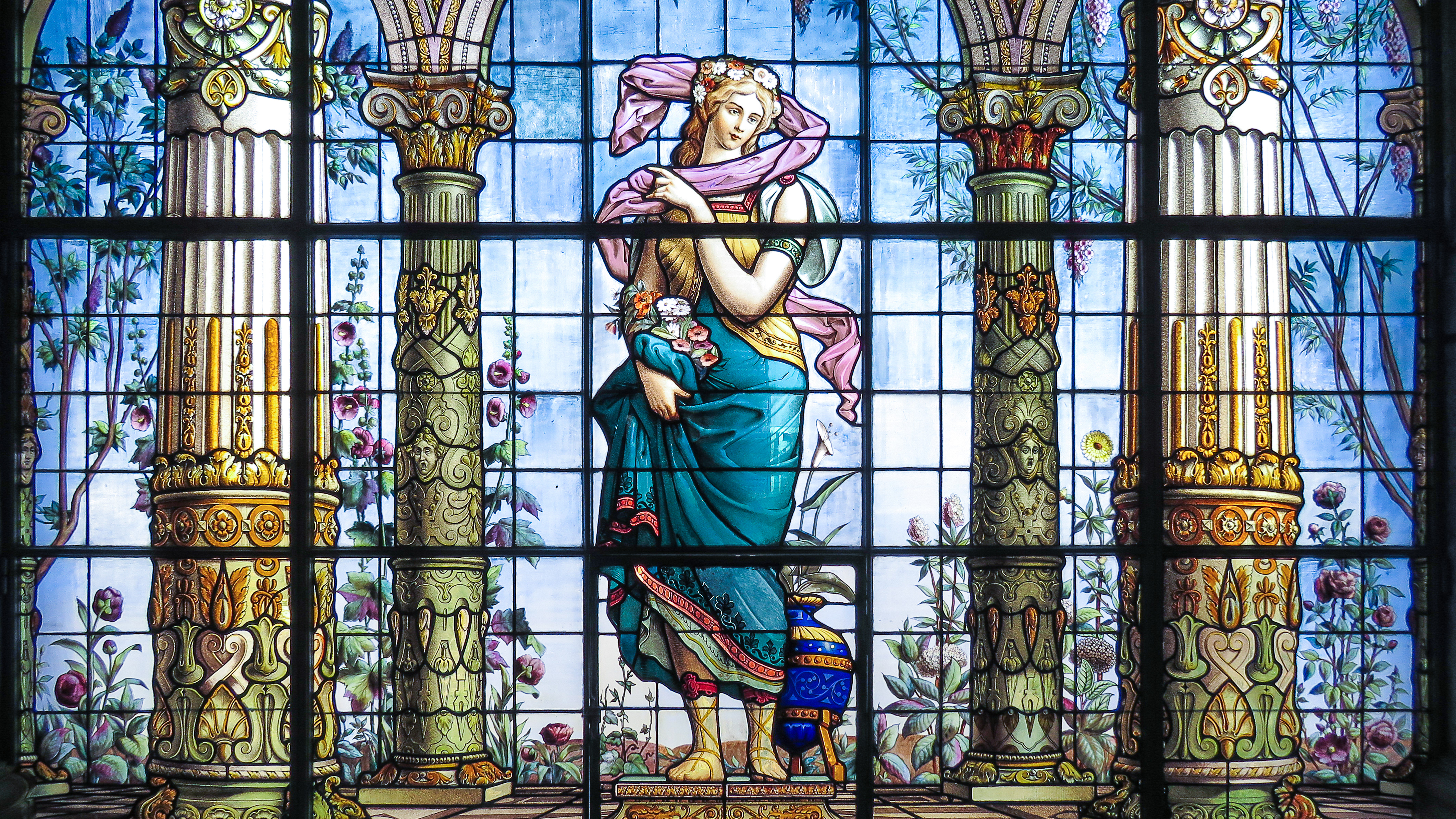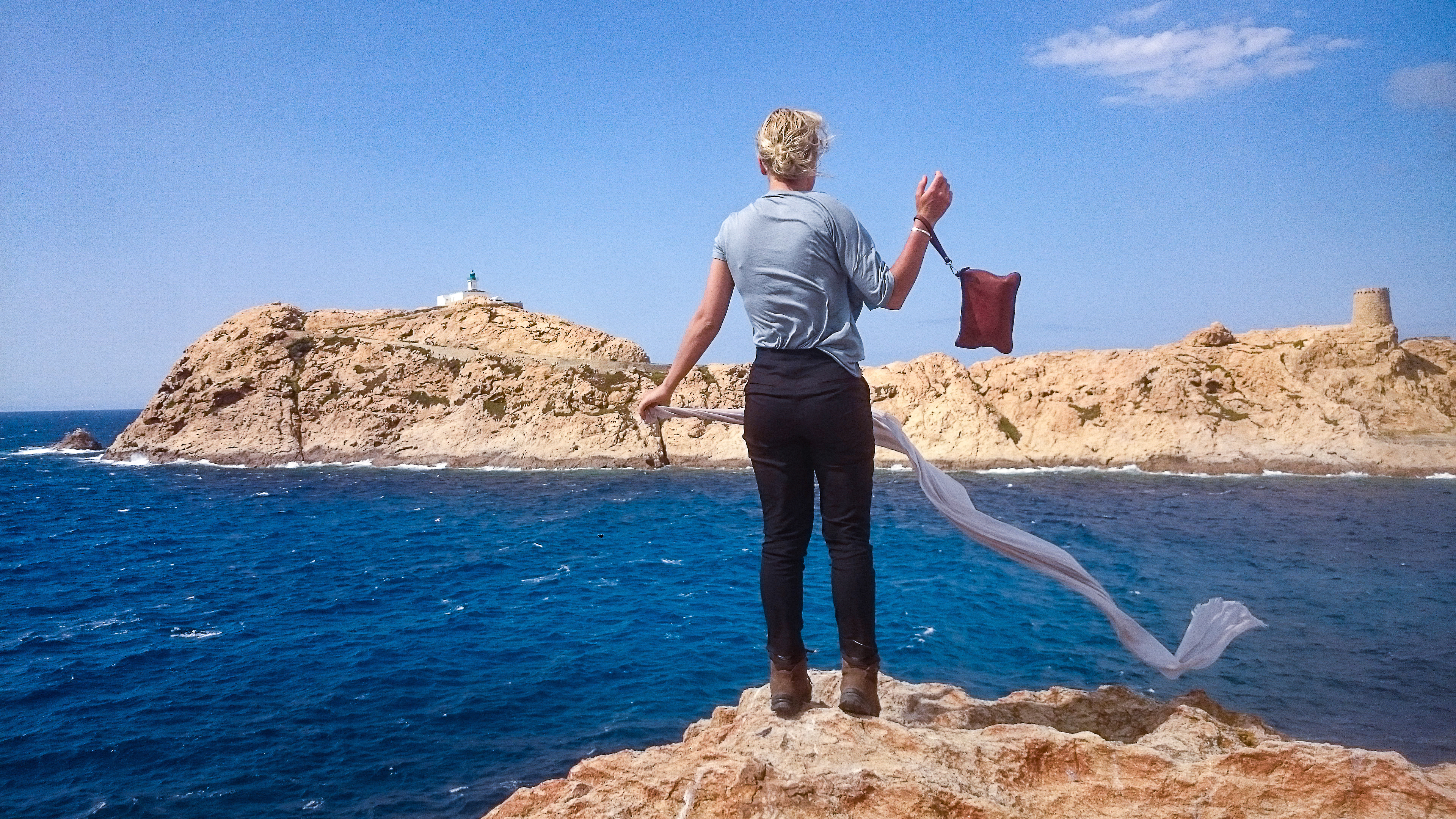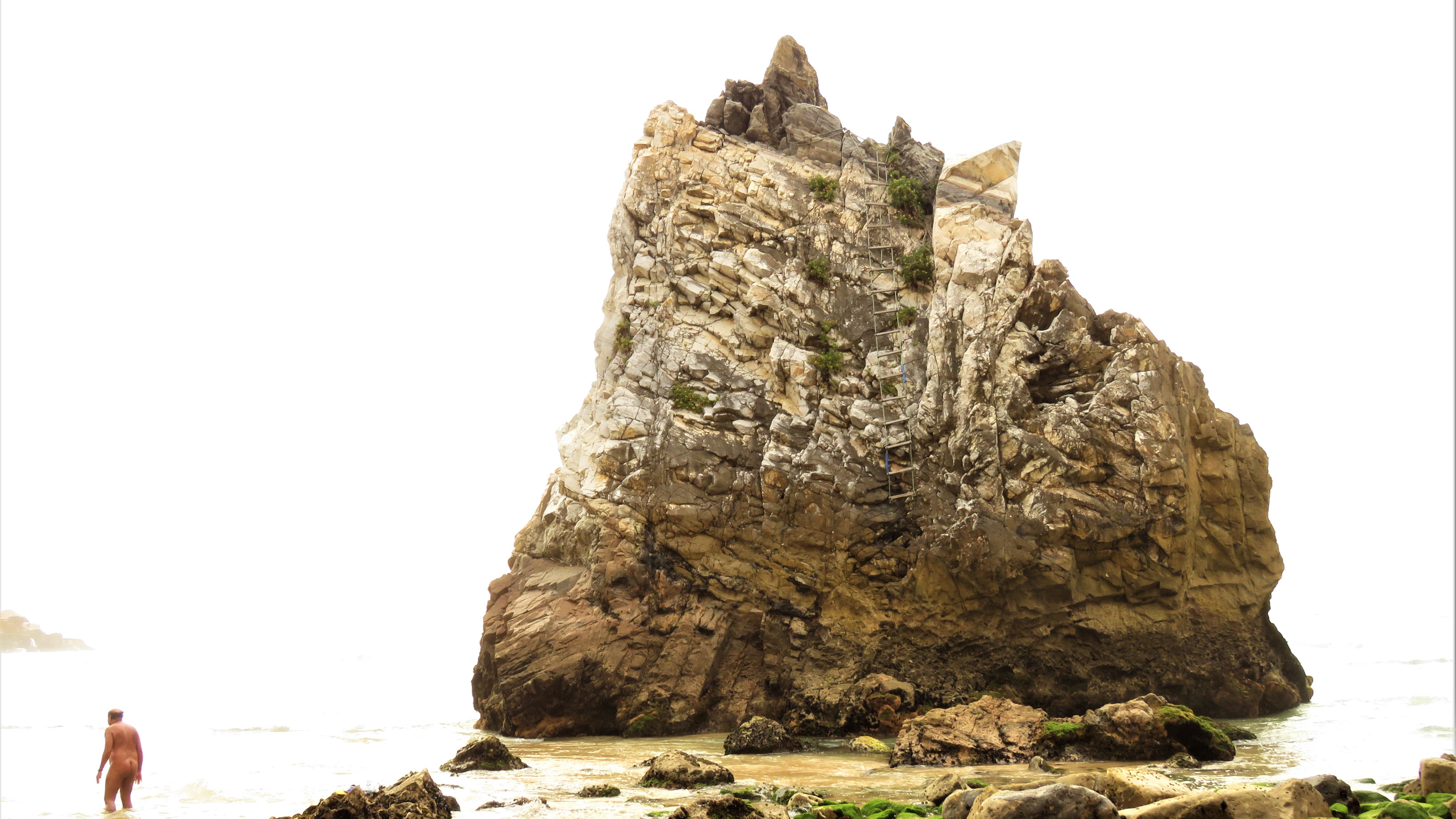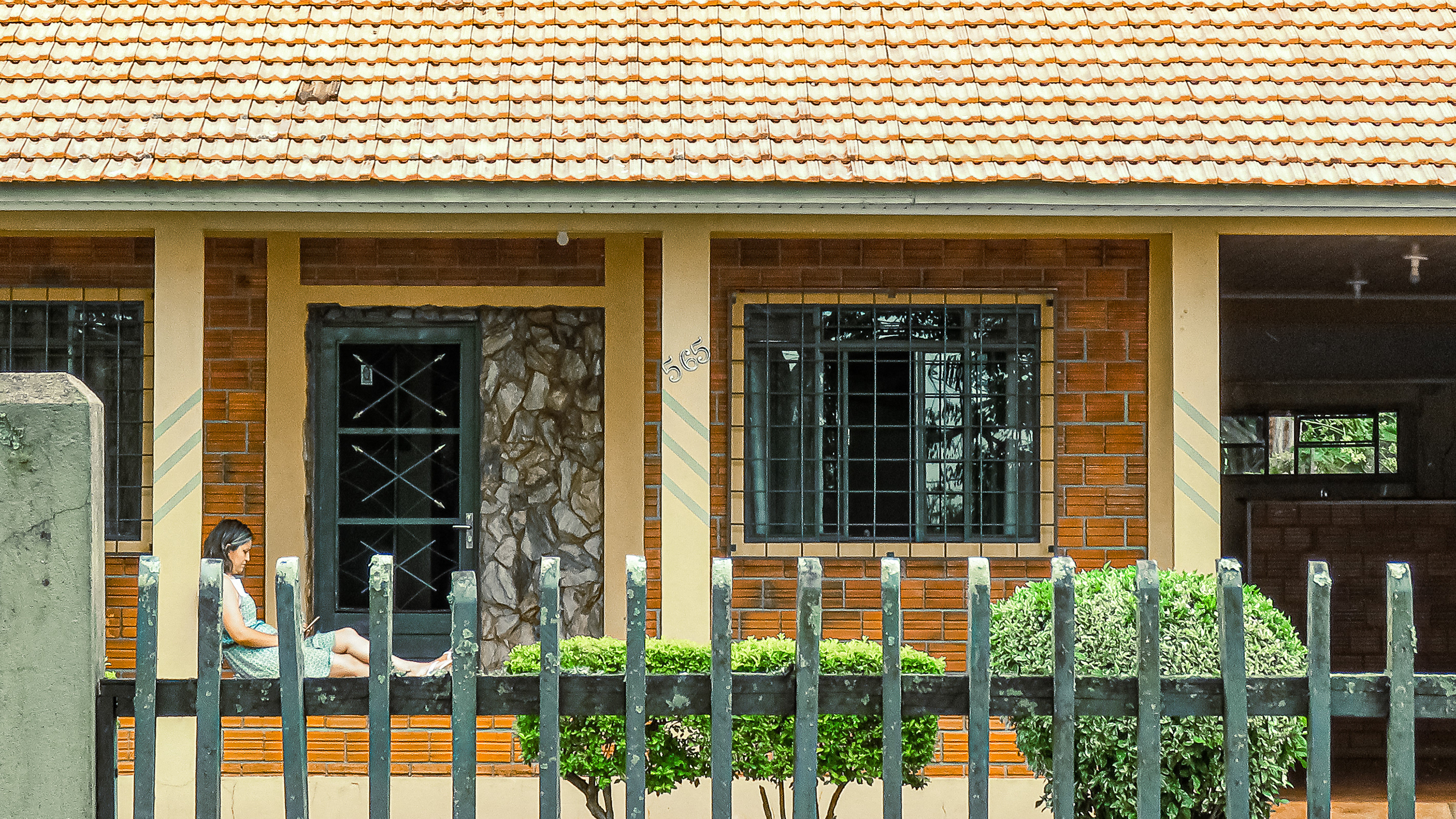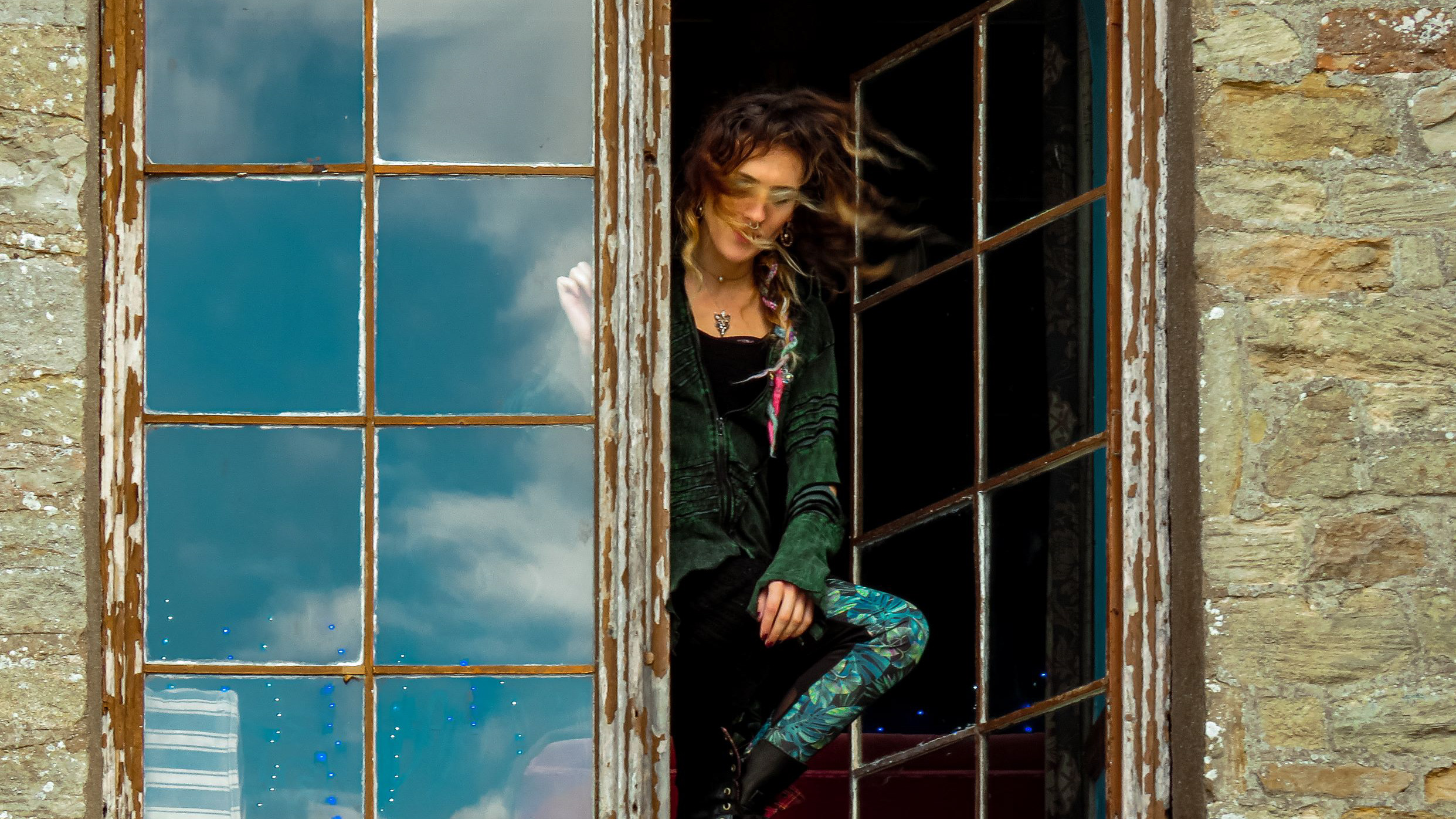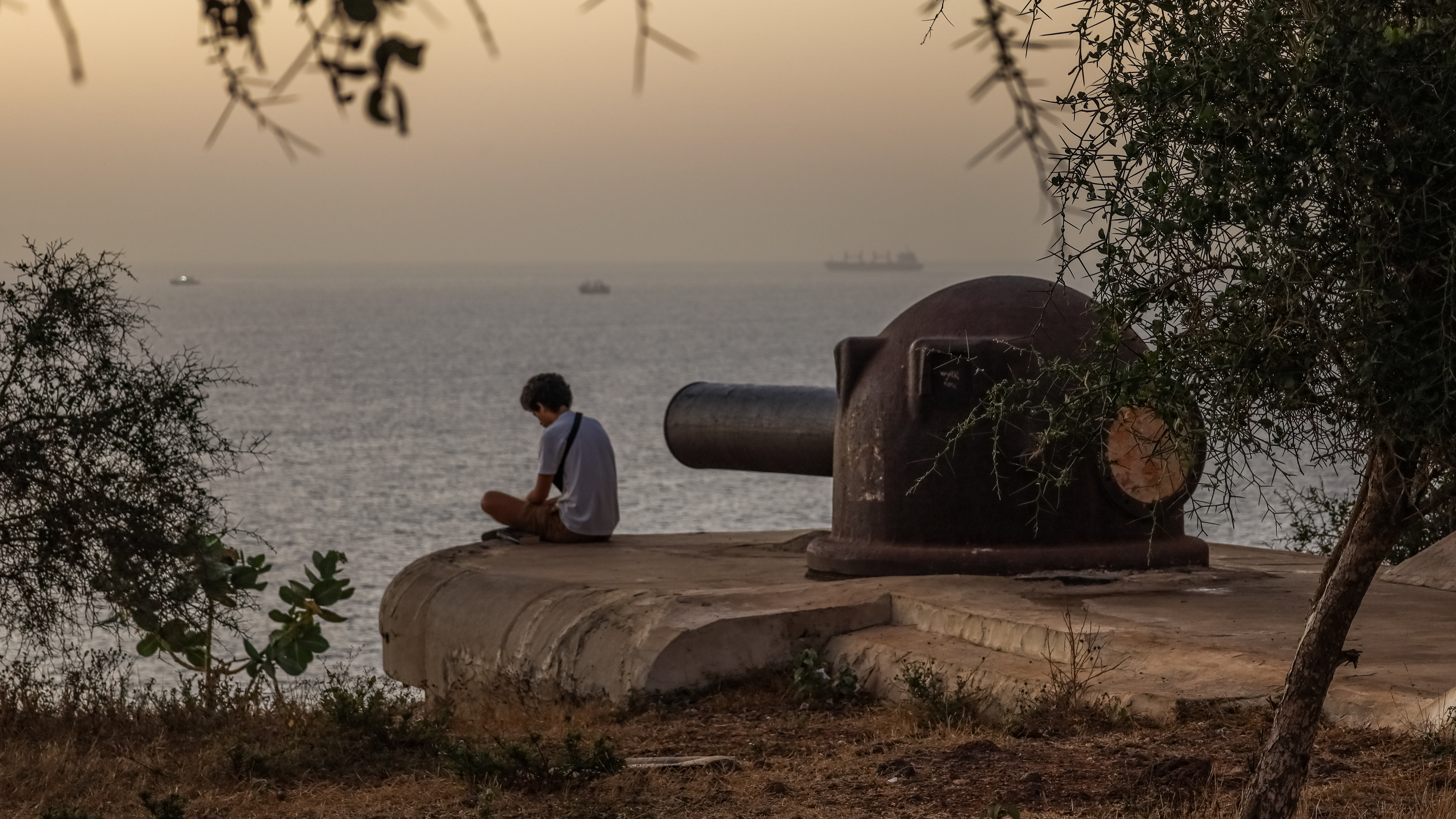***An important disclaimer***
This text is being published in December 2023 in a sensitive and violent time for Jews and Muslims in the Middle East and around the world. It does not attempt to deal with the complicated politics of the situation or to side with any entity in the ongoing conflict. The sole purpose of this text is to discuss issues of identity, belonging, and generational trauma, and hopefully, to offer some healing.
Prologue
Few places on Earth evoke such strong emotions as Jerusalem. It is a city that elicits either love or disdain, but rarely leaves anyone indifferent to the profound energy it exudes.
In Jerusalem, the air itself takes on a distinct quality, as if it holds a unique connection to the celestial realms. It feels thinner, lighter, as though fewer layers separate you from the divine kingdom above. Moving through this ethereal air may offer clarity and inspiration to a wandering soul, yet as soon as your feet touch the soil, a sense of heaviness and angst emerges. In stark contrast to the holy sphere enveloping your body, the land beneath your feet bears the weight of countless layers of history—bricks and agony laid down by men over millennia, resulting in conflicts and bloodshed. It's no surprise that entering the gates of this ancient city can stir such strong emotions, sometimes even leading to complete dissociation, known as Jerusalem Syndrome.
My encounter with this captivating energy occurred during a study visit to the old city with my army unit in early September 2002. While my fellow soldiers unpacked in the guesthouse, I wandered through the fault lines of the old city, navigating between the Jewish, Armenian, Christian, and Muslim quarters. The cool stone walls of narrow alleys provided relief from the sun's heat, while the air carried the fragrance of jasmine and the echoes of prayers from nearby mosques. I distinctly recall feeling the convergence of past, present, and future along with the threads of my own identity, creating a profound spiritual experience. It was as if the whispers of Moses, Jesus, and Muhammad all echoed in my ears, enticing me to explore every nook and cranny of this immortal city. Hours slipped away unnoticed, and upon my return to the concerned squad at the guesthouse, it became clear that this was merely the inception of a love affair. Something had moved in me when connecting to this city and I vowed to return and linger longer in the embrace of it.
—
I met both Rayd and Nickolai in the summer of 2021, coinciding with the opening of my first exhibition in Berlin.
Rayd, born in West Germany to a Palestinian father and a German mother, shares a temporal connection with Nickolai, born in Bulgaria to a Bulgarian father and a Jewish-Bulgarian mother. Both have found a sense of home in Berlin, embarking on a profound exploration of place, identity, and belonging in a world marked by conflict and trauma. Their narratives unfold almost as mirror images of each other. Despite never crossing paths, I present their inspiring stories side by side, recognizing that one cannot exist without the other.
Part I
“Personal identity is not at all fixed, it is always in process, but home as the materialization of identity anchors it in physical being that makes continuity between past and present. Without such anchoring of ourselves in things, we are, literally, lost.”
Iris Marion Young
Rayd
Rayd’s father was born and raised in a village in what is now called the West Bank, next to the city of Bethlehem—a city that earned its place in history books as the birthplace of King David and Jesus. In 1948, when their small village became part of the new kingdom of Jordan, Rayd's family moved to Amman, the capital, in pursuit of better opportunities. A family of artists and poets, they yearned for the energy and culture of the urban Levant. Rayd's father, who was already an educated young man, took a different course to study in Egypt and later in Austria, until eventually finding his place in Germany, where he met his wife and became the father of his children.
"Amman was the usual choice for many Palestinians seeking city life. None of my family members became refugees due to conflicts with Jews or perceived displacement. Some even immigrated to Canada in search of a better life. But, of course, that wasn't the case for everyone. Those who chose to stay in the West Bank after the 1948 war had to deal with the harsh reality that came after the 1967 war and either find refuge in Jordan which was now ruling only the east bank of the Jordan River, or stay under Israeli occupation."
When Rayd was six years old, his parents decided to relocate from Germany to Jordan, following the father's wish to reunite with his family. Adjusting to this foreign environment was challenging at first. In the initial years, Rayd grappled with a new language, extended family, and a culture that was more restrictive and patriarchal than the one he was accustomed to in Germany.
"There was a lot of discipline outside the house, and things had to be done in a certain way. I worked hard to be a 'good boy,' conforming to whatever rules were imposed on me and never rebelling or stretching the boundaries. Yet, I remained conscious of my German identity and the freedom of the West. We had a satellite dish, and I remember watching a lot of German TV, immersing myself in German culture, to the point where the German inner conflict of the Holocaust became part of my identity. Parallel to my attempts to keep the old flame alive, I also became aware of what it means to be Palestinian and live next to Israel. It raised a lot of curiosity in me, to the point where I even joined a youth movement that promoted a discourse of peace."
At the age of 18, Rayd left Amman to study in the US, where he could finally explore other facets of his identity without restrictions. Over the next 12 years, he navigated between the US, Germany, and Jordan, relishing the freedom to be gay and find love. This liberty allowed him also to cherish his past, and despite leading a happy and fulfilling life, his heart remained entangled with the colors and smells of the Middle East. At some point, after 12 years away, he decided to return to Jordan, feeling that there was no point in what he was doing if he could not share it with the people he loved. Being openly gay posed a significant challenge, but to his surprise, he found a good balance.
"I saw the feeling of safety as a choice. You couldn't kiss a man on the street or hold hands, but you could still take the car, drive to the middle of the desert, sleep together under the stars, and feel safe. Compromising that feeling of safety allowed me to tap into all the advantages and warmth of Jordanian society. From the outside, you can say that it is not a welcoming society for a Westerner, to lock the potential and not even give it a chance, but eventually, I found a good balance. My sexuality was mostly known to my close circle and respected, as long as it was not talked about in the open."
Living the romantic idea of the Orient and relinquishing some parts of his unconventional identity worked for some time but not forever. Rayd struggled to find love, work, and family in the same place, and the pressure of living in a religious society with a lower standard of living began to take its toll. It was his mother's illness that eventually prompted him to convince his dad to return to Germany for her to have access to better care.
"I remember asking my dad at some point: 'Why do you choose to live with traffic problems, a religious society, and political turmoil when you can sit and drink a cold beer with me under a tree somewhere or just go for a walk in the park?' My dad, despite loving Berlin, didn't like the idea of relocating again and uprooting from Jordan completely. He always said that he was like an old ancient tree - if you take him away from his roots, he will die. Which I never really understood because he spent 30 years away from Jordan. How does one define their roots? For me, it was something dynamic. My dad could choose to define that his roots were in Germany, where he lived for many years and built a family."
If place is a matter of choice, then what about identity? Rayd spent most of his life in Jordan, Germany, and the US, but if you were to ask him who he is, he would say without hesitation - Palestinian.
Nickolai
“I met people in the US who still define themselves as Palestinians, even though their parents and grandparents left 70 years ago, and they were born in Vermont. Why can't they define themselves as Jordanians for that matter?
But I also know it is not my place to judge. Can you take what a person identifies as home away from them? Who are you to judge them regarding what they consider as home?”
But I also know it is not my place to judge. Can you take what a person identifies as home away from them? Who are you to judge them regarding what they consider as home?”
Nickolai was born in Sofia, Bulgaria, in the 1970s when it was still under communist rule. He describes a safe and happy childhood in a green neighborhood, surrounded by an extended family that all lived in close proximity to each other.
At the age of 7, his parents decided to move to New York, where his father, a famous mathematician, just got a prestigious position at Columbia University. Back then, moving from an Eastern Block country to the American West could have cost the family their Bulgarian citizenship and persecution of family members, but with some creativity and by swinging back and forth between the two homes, the family managed to keep their legal status until the end of the Cold War in 1989, when they moved permanently to the US.
At the age of 7, his parents decided to move to New York, where his father, a famous mathematician, just got a prestigious position at Columbia University. Back then, moving from an Eastern Block country to the American West could have cost the family their Bulgarian citizenship and persecution of family members, but with some creativity and by swinging back and forth between the two homes, the family managed to keep their legal status until the end of the Cold War in 1989, when they moved permanently to the US.
“I managed to pick up English very quickly as a young child through consuming a lot of culture, television, and music, and so in my eyes, my identity was of an American, even though I spent only 2 years in NY as a child and then a couple of more years in California.
I also have a Bulgarian identity, even though my Bulgarian language skills are rusty and I’m not familiar with contemporary culture. When I meet my Bulgarian friends and family and we go into conversations about what is here and now, I feel a bit out of it.
I have these nice nostalgic memories of a happy childhood, but that’s about it. I lived abroad for too many years to form a more profound connection to that place.”
I also have a Bulgarian identity, even though my Bulgarian language skills are rusty and I’m not familiar with contemporary culture. When I meet my Bulgarian friends and family and we go into conversations about what is here and now, I feel a bit out of it.
I have these nice nostalgic memories of a happy childhood, but that’s about it. I lived abroad for too many years to form a more profound connection to that place.”
Not feeling like he fully belonged to either of those identities or to a particular place, Nickolai felt “between worlds” for most of his childhood. A national identity never really stuck with him, but an ethnic one did. His mother was Jewish, therefore he was Jewish, and somehow that notion grew on him and filled in the gap of belonging.
“I never lived the Jewish life and traditions as a child in Bulgaria. My mother never practiced the religion because she was too scared of anti-Semitism. In the US, she could finally express that part of her heritage and engaged the whole family in the process. She got me circumcised when we moved to the States and threw a massive party for me when I turned 13.
So I also grew up with a Jewish identity that took a more central space later with the years and especially now.
Somehow with the Jewish identity, I feel right at home. There are so many Jews who have been moving around between different places, but they are still Jews, and they also see me as such, no matter where I was born or where I choose to live. So, while I keep moving between different places around the world, I can always tap into the local Jewish community and immediately feel a sense of belonging.”
So I also grew up with a Jewish identity that took a more central space later with the years and especially now.
Somehow with the Jewish identity, I feel right at home. There are so many Jews who have been moving around between different places, but they are still Jews, and they also see me as such, no matter where I was born or where I choose to live. So, while I keep moving between different places around the world, I can always tap into the local Jewish community and immediately feel a sense of belonging.”
Juggling between multiple places and identities is a cultural phenomenon that has become quite prominent in our times, making the search for a “home” more difficult than ever. Yet, the feeling of belonging is still primarily attached to a nation-state. The first question someone will ask you in casual small talk or on a dating app is “Where are you from?” and the expected answer would be the name of a country. For Nickolai, it has become a complicated answer since he never felt that he belonged to any nation, yet something in that perception changed on his first visit to Israel.
“I have extended family in Israel, so when I decided to visit finally, I got to see not just the tourist sites like Jerusalem, Haifa, the Negev desert, etc., but also inside the family homes and the Israeli society. I immediately fell in love with everything: the nature, the food, the senses, the smells, and the diversity of people.
Everyone looks different from each other since they come from different corners of the world, yet the moment someone understands that I’m Jewish, they immediately treat me as a fellow Israeli.
I have this longing to move to Israel. I went back and forth in my mind for many years about doing Aliyah, but considering the cost of living, the unpredictable economy, my poor Hebrew skills, and especially the conflict with the Palestinians… I will have to start from scratch again in the most difficult conditions.”
Everyone looks different from each other since they come from different corners of the world, yet the moment someone understands that I’m Jewish, they immediately treat me as a fellow Israeli.
I have this longing to move to Israel. I went back and forth in my mind for many years about doing Aliyah, but considering the cost of living, the unpredictable economy, my poor Hebrew skills, and especially the conflict with the Palestinians… I will have to start from scratch again in the most difficult conditions.”
Part II
“Civilizations are illusory. But they are useful illusions. They allow us to deny our common humanity, to allocate power, resources, and rights in ways repugnantly discriminatory.
To maintain the effectiveness of these illusions, they must be associated with something undeniably real. That something is violence. Our civilizations do not cause us to clash. No, our clashing allows us to pretend we belong to civilizations.”
To maintain the effectiveness of these illusions, they must be associated with something undeniably real. That something is violence. Our civilizations do not cause us to clash. No, our clashing allows us to pretend we belong to civilizations.”
Mohsin Hamid
Rayd
“Ultimately, whether you belong to a group of people, a place, or a person, your heart feels like it is situated in this vessel, and I think once the vessel is gone, your heart is just sitting there, removed from your body, longing for a way back, and you feel so disconnected from yourself. You don’t know what to do because you are not at peace, and you just want your heart back in your vessel where it belongs. It creates this constant tension, and I think a lot of people who talk about home in Israel or Palestine, a lot of people are yearning to have their heart at peace wherever they are, but the moment they take a step towards that place, something in it changes, and it moves further away.”
The conflict between Israelis and Palestinians is perhaps the most famous regional conflict of the last century. That little corner of the Middle East might be insignificant in size, yet it seems everyone wants a piece of it or has an opinion on it. So far, the conflict has claimed the lives of hundreds of thousands of people from both sides, and unfortunately, it is far from reaching a peaceful resolution.
“Many years ago, I met an Israeli girl in London, and I told her, “If I could choose an image of how I perceive Israel, it would be like a sexy tiger. A very powerful being, vulnerable in its ways, and even if you can get close to it, you don’t know when it will bite off your head when you’re not paying attention.”
But I’m saying this not from the perspective of evil; It was just to symbolize something more abstract. You know the feeling when you see someone playing with a tiger, and you say, “I wish I could pet this tiger.” You see this creature with all its majesty, and at the same time, you know that it is held captive; it’s not free. For me, it was a very personal metaphor trying to understand what is it that I feel towards a nation. Why does it even matter, why do I have those emotions, why don’t I just walk away.”
But I’m saying this not from the perspective of evil; It was just to symbolize something more abstract. You know the feeling when you see someone playing with a tiger, and you say, “I wish I could pet this tiger.” You see this creature with all its majesty, and at the same time, you know that it is held captive; it’s not free. For me, it was a very personal metaphor trying to understand what is it that I feel towards a nation. Why does it even matter, why do I have those emotions, why don’t I just walk away.”
Palestinians and Israelis live side by side; in some places, they share neighborhoods, schools, and hospitals, and seemingly work together for their livelihood, and in other places, they are separated by walls, governments, and systematic exclusion. Despite the difference in culture and values, when mixed, they seem to coexist. Not without friction, but with enough respect and goodwill to solve the problems that often arise between neighbors who might complain about late-night noise or neglected front yards.
This is not the case for those who are separated. The fight over land, rights, and freedom never stops, and it seems there is no room for all the different identities on that piece of land. Whatever the reasons may be (and there are hundreds of books on that topic), the result is a continuous vicious cycle of trauma and bloodshed.
This is not the case for those who are separated. The fight over land, rights, and freedom never stops, and it seems there is no room for all the different identities on that piece of land. Whatever the reasons may be (and there are hundreds of books on that topic), the result is a continuous vicious cycle of trauma and bloodshed.
Violence is far more than a single act; its consequences echo for decades ahead. Some wounds leave scars and as such, violence, even if between partners or kids, leaves people with deep psychological damage that sometimes requires more than a lifetime to heal.
Many Jews still carry the collective trauma of the Holocaust even after 80 years, so imagine the pain both Jews and Palestinians carry from events that are recent or still ongoing.
Many Jews still carry the collective trauma of the Holocaust even after 80 years, so imagine the pain both Jews and Palestinians carry from events that are recent or still ongoing.
The physical and mental reaction to trauma caused by a rival is seldom conscious or controlled. In the immediate term, it provokes feelings of rage, hate, and a desire for revenge, and in the long term, it manifests in hostility, mistrust in people, and defensive behavior.
“I think there is absolutely no way for people to develop trust if they don’t choose to be vulnerable. Certain vulnerabilities, like in a bad relationship, might cost you 2-3 years of your life, while other vulnerabilities, like in the case of an armed conflict, might cost you so much more.
An Israeli might say - ‘if we give Palestinians a state, how do we know 50 years from today we will not be erased because of a military build-up?’. And the same goes for a Palestinian who might say - ‘if we just accept this peace plan now, how do we know that in 50 years from now we won’t experience another invasion under some random pretense?’”
An Israeli might say - ‘if we give Palestinians a state, how do we know 50 years from today we will not be erased because of a military build-up?’. And the same goes for a Palestinian who might say - ‘if we just accept this peace plan now, how do we know that in 50 years from now we won’t experience another invasion under some random pretense?’”
Safety is our most basic need, and if that need is not being met, no higher purpose can be realized. Asking for someone to be vulnerable when they fear for their life is unreasonable, yet something needs to happen to stop the cycle of violence and to start the long sisyphic work of building trust.
“When do you choose to exercise power and when do you choose to exercise vulnerability? I think it is a challenge not just for the Israelis but also for the Palestinians, as breaking opposition might be interpreted as a weakness. Both sides can exercise power, yet the true reflection of that power is completely different.
For Israelis, the question would be if they have the power to protect themselves or the power to deter their enemy. Palestinians, on the other hand, actually exercise a lot of power by boycotting. Boycotting is a great tool to put pressure on institutions. However, boycotting people is like telling them they don’t exist. Isolating them. If you win this, it is a little bit like killing someone. I can’t do that.”
For Israelis, the question would be if they have the power to protect themselves or the power to deter their enemy. Palestinians, on the other hand, actually exercise a lot of power by boycotting. Boycotting is a great tool to put pressure on institutions. However, boycotting people is like telling them they don’t exist. Isolating them. If you win this, it is a little bit like killing someone. I can’t do that.”
Nickolai
“I’m a Zionist. I believe the Jewish people should have the right to self-determination and for a nation-state. I believe we have to preserve Israel and keep it alive; however, I have always been very much opposed to the settlements and occupation of the Palestinians. I don’t understand why the Palestinians cannot have their own right to self-determination.”
The attempts to reach a peace agreement between Israel and Palestine have been ongoing since the 1990s and have been interrupted often by waves of terrorism by radical groups that wished for the annihilation or removal of one side rather than a compromise of a two-state solution.
“After visiting Israel and seeing the conflict first hand, my view became more complex. The pain that many Israelis had to go through, the wars and intifadas, made me feel more empathy and understanding of that side of the conflict that is also struggling. The world sees Israel as the rich and powerful in this conflict, in some way in a similar manner to the old anti-Semitism, forgetting it used to be the underdog fighting for its existence. If you say - I don’t agree with Netanyahu (Israel’s most elected prime minister in the last 25 years), that’s a legitimate criticism, but when you say that Israelis are killing Palestinians, that’s a generalization pretense that implies anti-Semitism or can be interpreted as such.”
Many conflicts around the world have been ongoing for decades, yet no other tormented place has been at the top of the news headlines as much as that particular corner. Most would assume it is because of its strategic importance for the world's “superpowers” due to its location at the meeting point between 3 major continents, like a bridge between east and west. Other voices claim that it is rooted in the traditional anti-Semitism that has followed the Jewish people throughout modern history almost to the brink of annihilation until they found a “safe haven” in their historic homeland.
On a personal note, the topic of anti-Semitism touches me deeply. I am the grandson of German Holocaust survivors who immigrated to Israel after the Second World War and of Yemenite refugees who fled to Israel in the 1930s, escaping Islamic hostility. The collective trauma of centuries of anti-Semitism is deeply ingrained in me despite growing up in an environment where I was ethnically a majority. I have been living outside of Israel for many years now, yet I never managed to fully let go of the possibility that one day I might be displaced or killed for an ethnic identity I never chose. There is always a voice in the back of my mind that rejects the idea of growing roots somewhere due to unconscious fear that at some point my environment will turn its back on me or push me out.
“My grandparents are also displaced people; the moment the war was over, they moved on without looking back. Some stayed in the communist regime, and some left for Israel, but the trauma is still there. Considering history, this formation of a Jewish state was inevitable, but I am worried about what will happen if the experiment of Israel fails. The European Jews might be able to go back to Europe, but not all Israelis are from a European background. Where would the North African or Middle Eastern Jews go?”
PART III
“It is always possible, and easy, to find a prior violence that supposedly justifies our present violence. But, on this way of reckoning, war will never end.”
Tzvetan Todorov
Zipi Livni, a former minister of law in Israel, once said that there is a time limit to the title of “refugee.” She meant that after 2 or 3 generations in the diaspora, a refugee has to assimilate into their local environment and cannot still claim to return to the land of their ancestors. The statement was directed towards Palestinians who demanded the right to return to their former lands as a part of a future peace agreement, yet in the same way, it is true for the Jewish people who “returned” to the land of Israel after the formation of the Jewish state. Still, today, Nickolai and other Jews like him can move to Israel and quickly receive citizen status, yet this is not the case for Palestinian refugees. Around 700,000 Palestinians were displaced from the new Israeli state in 1948 after the Arab countries of the region rejected the UN two-state solution, declared war on Israel, and lost it. If they and their descendants are granted the right to return, Israel will cease from having a Jewish majority, and if it stays a democracy, will de facto become an Arab state, and thus might not stay safe anymore for Jewish people.
Rayd
“I think that being displaced or feeling like you don’t have access to a place you feel you belong to is a traumatizing event. As long as you don’t overcome this trauma, which keeps on radiating in different shapes and forms, and creating its own new momentum all the time, you will never feel at peace with what happened and always feel defined in some way as a refugee or someone who is excluded. I think that you can never ask people to stop thinking of themselves as refugees if they feel that this part of their life does not get the right recognition. They are entitled to their pain and trauma.”
Eventually, it all comes down to the way we process trauma and how we prevent it from dictating our lives. There is no one in Israel or Palestine that hasn’t experienced the trauma of the conflict firsthand. I still carry the trauma of suicide bombers exploding in the streets of my city and the loss of friends and classmates who died before even turning 20 years old during their army service. I will be honest. It took me time as a young adult to find a place in my heart and see the devastating loss of lives on the other side as equal. I had to step out of my own trauma to clear the bias and see the complexity of the reality in the Middle East.
“A lot has to do with how these trauma narratives stay alive, either through how people interact or by how you perceive modern events that just happen which keep on resurfacing that trauma.”
There is no moment of peace in the land of Israel. No moment to stop the madness and feel safe enough to look into the trauma and peel it back - bit by bit - like layers of armor or rough skin to reach the core of the pain and heal it. The fight never stops dictating the local reality, and the trauma just keeps on piling up until the voice of reason and peace is reduced to a dying whisper. People are too busy licking their wounds to see beyond them.
“We still have a choice. One that makes people rise above the endless narrative that is being shaped by whatever negative experiences of the people around them. We can be defensive, walk away, avoid, ignore, or go into a rational argument to excuse ourselves from understanding the other side, or we can let the pain of the other side come in and be empathetic toward the person in front of us even if it is just for one moment. It’s not about saying ‘I’m co-responsible because my grandfather did something’ or my brother did something or even when I was doing something. It’s not about carrying the sense of responsibility by association, because blame will not help either. It is just to acknowledge that in a certain moment, carrying that burden of pain, is sometimes all the soothing that the other person might need. That is where peace starts.”
Healing generational trauma is a long process, but sitting together and acknowledging it is a first major step that many peace organizations in Israel are based on. Palestinian mothers and Israeli fathers who lost their precious kids to this bloody conflict sit together in group therapy and wipe each other's tears. These brave people leave their egos and pride aside and join hands to support one another in the long journey of healing. But the question still remains - how can we stop this vicious cycle of violence which inflicts more pain and trauma? How many more rivers of blood would flow for us to put down our weapons and see that we extracted all the milk and honey out of this piece of land - and been left only with sorrow?
Nickolai
“I have two Palestinian friends in Berlin who were born in Nazareth but lived most of their lives in Germany. We have an interesting and complex relationship where we understand each other better than most people but at the same time avoid certain topics that might be explosive. They understand the situation in the Middle East in a more objective way. On the one hand, they make those self-ironic jokes in front of me about Arabs and the culture they come from - something that they probably wouldn’t do in front of Germans or Americans. Yet, they still refuse to call it Israel and see Palestine ‘from the river to the sea’. They recognize that I have this strong connection to the land as much as they do, and therefore they understand my Jewish identity better than Germans who won’t get it, but they also believe that the Jews should go back to Europe or live under the Palestinian government as a minority like the old days before Israel was founded.”
As long as we demand land, any land, for ourselves, nothing will ever change. The idea of roots belongs to trees and flowers, not to mammals who walk the earth in search of food to survive. We can argue that a piece of land surrounded by fences will grant us safety, but it seems that no border can save us from ourselves, and this is true for both Israelis and Palestinians.
“We have to give up history sometimes to move forward. I’m aware of my idealism about Israel as a Jew living in the diaspora. My short-lived experiences that shaped my image of the place, and the reality are two different things. In reality, if I move to Israel, I will spend most of my time in traffic and trying desperately to pay my bills. In the same way, other people have this romantic idea about Palestine, but unfortunately, this idea will probably not materialize in our lifetime, definitely not as the wonderful image they might hold on to. At some point, we will have to accept that harsh reality and make this dream that we have, of olive trees and jasmine tea, manifest wherever we are right now; if it’s Chile, Germany, or Lebanon.”
Epilogue
“You are only free when you realize you belong no place - you belong every place - no place at all. The price is high. The reward is great.”
Maya Angelou
It was in 2019 when my life (and love) unexpectedly took me to Berlin. I never thought I would call this place home, considering the dark history it holds, but I gave it a chance. The chaos of endless possibilities and the wide spectrum of identities make this place a sort of hedonistic playground, but in my eyes, it is more like a university. It is a place that asks you to reconsider everything you thought was true and open your mind to parallel worlds that are different from yours. Like university, it also means that when you finish your degree, it is time to move on…
Rayd
“I am extremely protective of Berlin. I want to believe that this is a place that could be better than the places we run away from. I think that Berlin, with all its openness and freedom, can allow us to put our past behind us and not take the conflict and the trauma we experienced with us. By reliving them again and again, we don’t give ourselves, the city, or the community around us an opportunity to be good to us.”
But in the year 2023, when I write these words, the trauma of the past is very much present. The sharp increase in anti-Semitic crimes during the war in Gaza and the Palestinian flags hanging from shops and balconies bring back a fear I thought I would never have to experience. The discourse around the conflict between Israel and Palestine is populistic and violent, and it crosses classes, races, and political views. The words Rayd shared with me only 2 years before echo in my head loudly as I walk the alienating streets of the city.
“It’s easy just to become a part of a political movement and not give a fuck about where tomorrow leads us. It’s a very different thing when coming from a place where you saw and experienced where this shit can lead. We must find a balance between being ourselves, having our opinions, and having our narratives while keeping in mind where we want to land with this, and what we want this world to be like.”
Identity, belonging, and trauma are all deconstructed and re-examined in Berlin, but the safety that once allowed us to explore these issues is gradually disappearing. Tension in the streets is high, and it feels like a new cycle of exile is looming over us—Jews and Muslims—resurrecting old wounds.
Back in 2021, I remember having tears in my eyes when I concluded my conversation with Rayd. I gave him a long hug before I stepped out the door into the rainy street and whispered “I’m sorry”.
Not just because it was important for him to hear that, but also because I knew the pain was far from being over. For both of us.
Not just because it was important for him to hear that, but also because I knew the pain was far from being over. For both of us.
There are countless stories like Rayd's and Nickolai's, especially in Berlin, of people who fled conflict, trauma, or exclusion and found momentary refuge in the city's colorful, free, and diverse atmosphere. While it's tempting to assume security in this liberal haven, it ultimately mirrors the torn and conflicted world at large. Regardless of our identities, forever entangled through pain and angst, it's our responsibility to coexist in peace and respect. We must listen more than we speak and commit to building lasting bridges.
Who knows? Maybe the gospel of peace will find its way to Berlin before Jerusalem. Considering history, it might be the perfect place to start.
